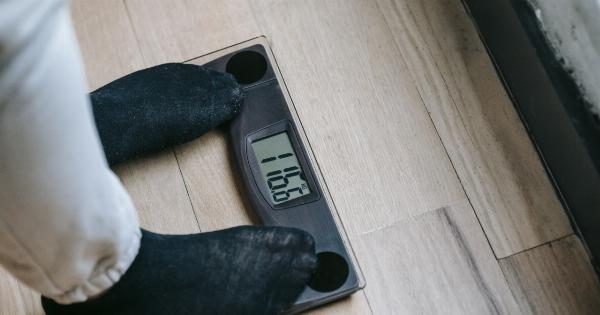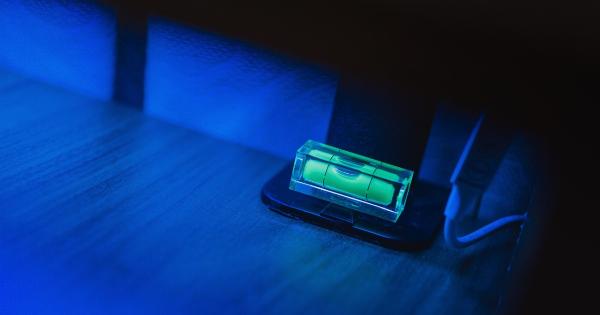Cholesterol is a fatty substance that circulates in your blood. Although cholesterol is necessary for several vital bodily functions, too much of it can lead to health problems such as heart disease.
To monitor your cholesterol levels and assess your risk, your healthcare provider may recommend a cholesterol check.
What is a Cholesterol Check?
A cholesterol check, also known as a lipid panel or lipid profile, is a blood test that measures various types of cholesterol and fats in your bloodstream. This test helps determine your risk of developing heart disease and other related conditions.
The Importance of Cholesterol Testing
Cholesterol testing is crucial for assessing an individual’s risk of heart disease. High levels of low-density lipoprotein (LDL) cholesterol, commonly known as “bad” cholesterol, can lead to the buildup of plaque in your arteries.
This build-up restricts blood flow and increases the likelihood of heart attacks, strokes, and other cardiovascular issues.
Conversely, high-density lipoprotein (HDL) cholesterol, often referred to as “good” cholesterol, helps remove LDL cholesterol from the bloodstream, reducing the risk of heart disease.
Triglycerides, another type of fat in your blood, can also be assessed during a cholesterol check.
Types of Cholesterol Tests
There are several types of cholesterol tests available:.
1. Basic Lipid Panel:
A basic lipid panel measures the levels of total cholesterol, LDL cholesterol, HDL cholesterol, and triglycerides in your blood. This test provides a comprehensive assessment of your cholesterol profile and is generally recommended as a starting point.
2. Fasting Lipid Panel:
A fasting lipid panel is similar to a basic lipid panel; however, it requires fasting for 9-12 hours prior to the test. This fasting period ensures more accurate results for triglyceride levels, as certain foods can temporarily increase triglycerides.
3. Non-HDL Cholesterol Test:
The non-HDL cholesterol test measures all types of cholesterol except HDL cholesterol. It provides insight into the amount of cholesterol that may contribute to plaque buildup in your arteries.
4. Advanced Cholesterol Testing:
Advanced cholesterol testing includes additional measurements, such as lipoprotein(a) [Lp(a)], particle number, and particle size.
These tests provide more detailed information about your cholesterol profile and can be useful for individuals with a family history of heart disease or elevated risk factors.
Do You Need to Fast Before a Cholesterol Check?
One common question regarding cholesterol checks is whether fasting is necessary before the test. The answer depends on the type of cholesterol test you are undergoing.
Fasting vs. Non-Fasting Cholesterol Tests
A fasting lipid panel, as mentioned earlier, requires fasting for 9-12 hours prior to the blood draw. This means refraining from eating or drinking anything other than water during this fasting period.
Fasting helps ensure the accuracy of the triglyceride measurement.
Triglyceride levels can temporarily rise after consuming certain foods, particularly those high in fat or carbohydrates. By fasting before the test, your healthcare provider can obtain a more accurate baseline measurement of your triglyceride levels.
On the other hand, a non-fasting cholesterol test does not require fasting beforehand. It can be performed at any time during the day, regardless of when you last ate.
Non-fasting lipid panels are generally considered convenient, especially for individuals with busy schedules or difficulty fasting for an extended period.
When is Fasting Required?
While non-fasting cholesterol tests provide convenience, fasting remains necessary for certain situations or specific cholesterol tests.
If your healthcare provider specifically requests a fasting lipid panel or advises fasting, it’s important to comply with their instructions.
Typically, fasting cholesterol tests are recommended in the following cases:.
1. Baseline Assessment:
If you have never had a cholesterol test before, your healthcare provider may request a fasting lipid panel for an accurate baseline measurement.
This helps establish your cholesterol levels and determine any necessary lifestyle changes or interventions.
2. Repeated High Triglyceride Results:
If your previous cholesterol test indicated high triglyceride levels, fasting for subsequent tests is generally advised. This allows for a more accurate assessment of your triglyceride levels and any necessary steps to manage them effectively.
3. Preparation for Additional Testing:
If you are undergoing advanced cholesterol testing or additional assessments, your healthcare provider may require fasting to ensure accurate results for the various markers being evaluated.
Advanced cholesterol tests often consider factors beyond standard cholesterol measurements, such as lipoprotein(a) and particle numbers. Fasting helps ensure precise readings for these additional components.
4. Monitoring Medication Efficacy:
If you are taking medications prescribed to manage cholesterol levels, your healthcare provider might recommend periodic fasting lipid panels to monitor the effectiveness of the medication.
Fasting tests provide a consistent baseline for comparison and help determine the medication’s impact on your lipid profile.
Preparing for a Fasting Cholesterol Test
If you have been instructed to undergo a fasting cholesterol test, it is important to follow the necessary steps to ensure accurate results:.
1. Check Fasting Requirements:
Confirm the specific fasting instructions with your healthcare provider. They will provide you with a clear timeline of how long you need to fast before the blood draw. The typical fasting period is between 9-12 hours.
2. Avoid Foods and Beverages:
During the fasting period, refrain from consuming any foods or drinks other than water. Even small amounts of certain foods or beverages can temporarily alter your triglyceride levels, impacting the accuracy of the test results.
3. Stay Hydrated:
While fasting, make sure to drink plenty of water. Staying hydrated is crucial, as dehydration can affect blood volume and potentially lead to less accurate test results.
4. Take Medications as Usual:
Unless instructed otherwise by your healthcare provider, continue taking your regular prescribed medications during the fasting period.
However, certain medications, such as those for diabetes management, may require specific guidance from your healthcare provider. Always consult them regarding any concerns about your fasting medication routine.
5. Plan the Test Time:
Schedule your cholesterol test for a time when it will be convenient for you to fast. Some individuals find it easier to fast overnight to minimize the fasting period’s impact on their daily routine.
Choose a time that allows you to complete the required fasting duration comfortably.
The Importance of Accurate Test Results
The accuracy of cholesterol test results is crucial for determining your cardiovascular health status and overall risk of heart disease.
Fasting, when required, plays an essential role in obtaining precise measurements, particularly for triglyceride levels.
While non-fasting cholesterol tests offer convenience, they may not provide as detailed a picture of your lipid profile.
If your healthcare provider specifically requests a fasting lipid panel, it is important to adhere to the fasting instructions to ensure accurate results.
Remember, fasting requirements may vary based on individual circumstances, medical history, and the type of cholesterol test requested. Always consult your healthcare provider for personalized instructions tailored to your specific needs.





























